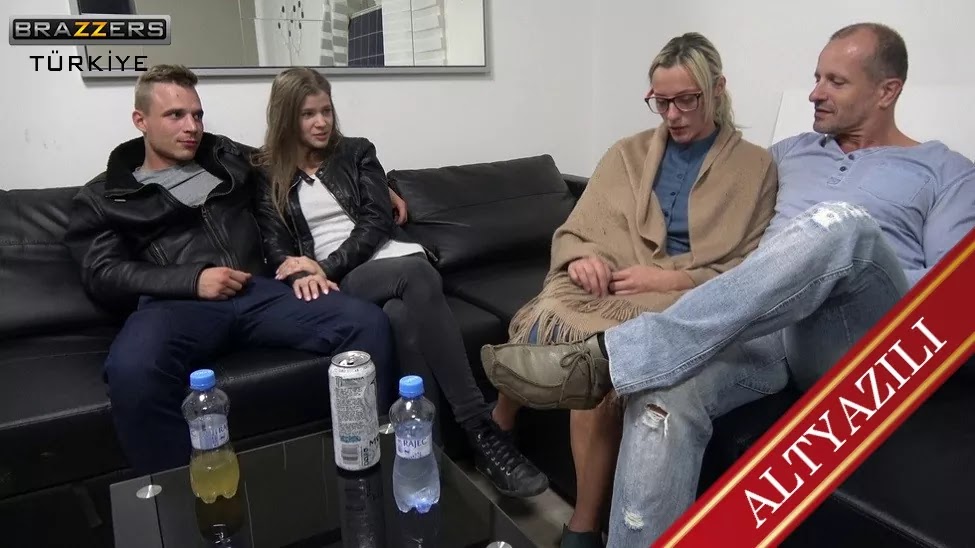In recent years, the concept of "Czech Wife Swap" has gained significant attention, captivating audiences not only in the Czech Republic but also globally. This intriguing social experiment raises questions about relationships, cultural norms, and the boundaries of personal choices. As we delve into this phenomenon, we will explore its origins, implications, and the societal perceptions surrounding it.
The term "Czech Wife Swap" refers to a unique cultural practice where couples exchange partners for a set period, often featured in reality television shows. This practice has ignited conversations about fidelity, trust, and the complexities of modern relationships. By understanding the cultural context behind this phenomenon, we can gain insights into how such practices challenge traditional views on marriage and companionship.
As we navigate through this article, we will discuss various aspects of the Czech Wife Swap, including its historical background, societal implications, and the psychological effects on participants. Additionally, we will reflect on how this practice is perceived by the broader community and what it reveals about evolving relationship dynamics in contemporary society.
Table of Contents
- 1. Background of Czech Wife Swap
- 2. Cultural Significance
- 3. Psychological Impact on Participants
- 4. Media Representation and Public Perception
- 5. Legal and Ethical Considerations
- 6. Personal Accounts and Experiences
- 7. Global Perspective on Wife Swapping
- 8. Conclusion
1. Background of Czech Wife Swap
The practice of wife swapping has roots in various cultures around the world, but the Czech Republic has become particularly known for its unique take on this phenomenon. The idea emerged in the early 2000s, coinciding with the rise of reality television. Shows depicting this practice gained popularity, leading to increased curiosity and participation among couples looking to explore their relationships in a new light.
Wife swapping in the Czech context often emphasizes consensual arrangements, where couples agree to exchange partners for enjoyment, exploration, or even to strengthen their existing relationships. It is essential to differentiate this from infidelity, as the foundation of these exchanges is typically based on mutual consent and respect.
2. Cultural Significance
The cultural significance of Czech Wife Swap extends beyond mere entertainment. It reflects changing attitudes toward marriage, love, and intimacy in contemporary society. In a culture that has historically placed a high value on traditional family structures, the emergence of such practices signifies a shift toward more liberal views on relationships.
This cultural shift can be attributed to several factors, including:
- The influence of Western media and globalization
- Increased acceptance of non-traditional relationship structures
- The desire for personal exploration and freedom
Impact on Traditional Values
As the concept of wife swapping gains traction, it poses challenges to traditional values surrounding marriage. Some argue that this practice undermines the sanctity of marriage, while others see it as an opportunity for couples to explore their desires and strengthen their bonds.
3. Psychological Impact on Participants
Participating in a wife swap can have various psychological effects on individuals involved. While some may report feeling liberated and satisfied, others might experience feelings of jealousy, insecurity, or guilt. Understanding these psychological impacts is crucial for anyone considering participation in such practices.
Potential psychological effects include:
- Increased communication skills between partners
- Heightened feelings of jealousy or insecurity
- Exploration of personal boundaries and desires
Therapeutic Benefits
Interestingly, some couples have reported therapeutic benefits from engaging in wife swapping. They claim that the experience allowed them to confront underlying issues in their relationships, leading to improved communication and intimacy.
4. Media Representation and Public Perception
The portrayal of Czech Wife Swap in media plays a significant role in shaping public perception. Reality television shows have dramatized and sensationalized the concept, often leading to misconceptions about its nature and implications.
Media representation can contribute to:
- Stigmatization of participants as immoral or unfaithful
- Misunderstanding of the consensual nature of these arrangements
- Fueling curiosity and fascination among the audience
5. Legal and Ethical Considerations
While wife swapping is typically consensual, it raises important legal and ethical questions. Issues surrounding consent, safety, and emotional well-being must be addressed to ensure that all participants are protected and informed.
Some legal considerations include:
- Consent laws and their application in such arrangements
- Potential implications for marital agreements and custody
- Health and safety considerations for participants
6. Personal Accounts and Experiences
Personal testimonials from individuals who have participated in Czech Wife Swap provide valuable insights into the motivations, experiences, and outcomes of such arrangements. Many participants report a sense of adventure and excitement, while others caution about the emotional risks involved.
Common themes from personal accounts include:
- Increased intimacy and trust between partners
- Feelings of jealousy and insecurity
- Discovery of new preferences and desires
7. Global Perspective on Wife Swapping
Czech Wife Swap is part of a larger global trend of alternative relationship structures. Various cultures around the world engage in similar practices, albeit under different names and contexts. Understanding these global perspectives enriches our understanding of human relationships and the diversity of cultural practices.
Comparative insights include:
- Variations of wife swapping in different cultures
- Societal acceptance levels across countries
- Impact of cultural values on relationship dynamics
8. Conclusion
Czech Wife Swap serves as a fascinating case study of evolving relationship dynamics in contemporary society. While it challenges traditional notions of marriage and fidelity, it also opens up dialogues about consent, communication, and personal exploration.
As society continues to evolve, understanding and respecting diverse relationship structures will be essential. We encourage readers to share their thoughts in the comments, engage in discussions about relationship dynamics, and explore further articles on related topics.
Thank you for reading! We hope to see you back for more insightful discussions on modern relationships and cultural phenomena.


